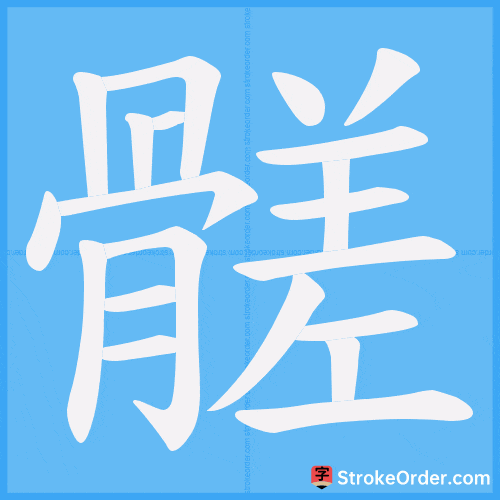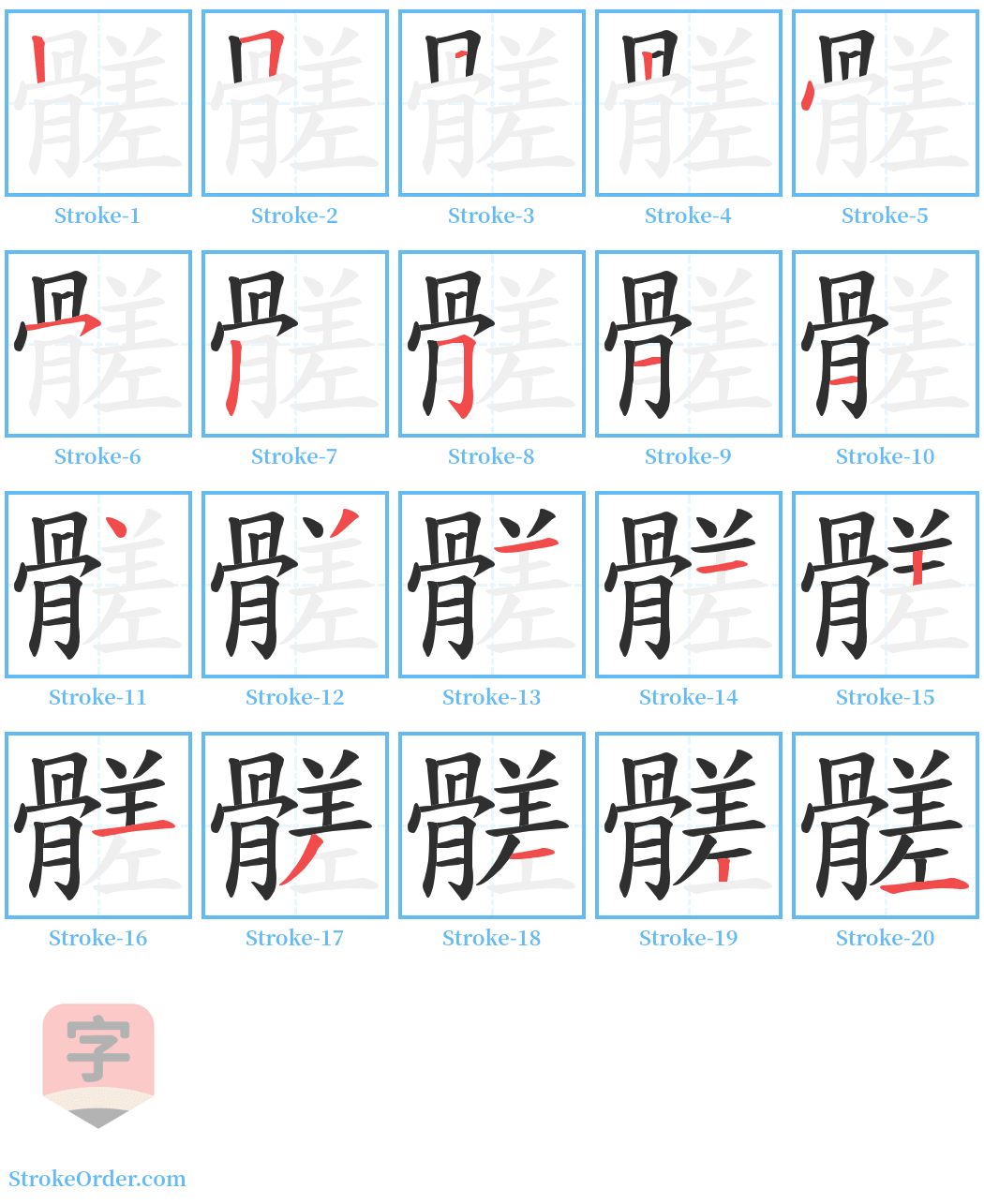髊 Stroke Order
Animated Stroke Order of 髊

Stroke Order Diagrams for 髊

Information of 髊
Pinyin
cī
Radical
骨
Strokes
18 strokes
Usage
★★
Definition
髊
1. Anciently the same as "骴" (gāo, meaning "bone").
2. (Noun) A bone with decaying flesh.
Example from "Yupian · Pi Bu": "髊,腐骨也。" (髊 means decayed bone.)
From "Luxi Chunqiu · Mengchun Ji": "无置城郭,揜骼霾髊。" (Do not place city walls, cover the bones and decayed ones.)
Han Dynasty commentary by Gao You: "髊,读水渍物之渍。白骨曰骼,有肉曰髊。" (髊 refers to the moisture-affected aspect of materials. White bone is called 骼, while those with flesh are called 髊.)
3. (Verb) To make objects from materials such as teeth, bones, horns, etc.
Example from "Jiyun · Ping Sheng · Ge Yun": "髊,治牙骨也。" (髊 means to treat teeth and bone.)